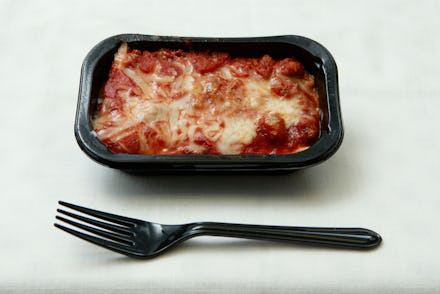Does microwaving kill the nutrients in your food? Here's the truth about nuking

Microwaving is the easiest form of cooking. From mug cakes to Stouffer's mac and cheese to reborn leftovers to just frozen veggies to top whatever else you're eating, zapping a meal in the microwave is tempting for those short on time or willpower to cook. But is heating your food with radiation really the healthiest way to prepare food?
"When making the effort to receive the recommended five to nine servings of fruits and vegetables each day, we want to make sure we are getting all the wonderful vitamins and minerals they have to offer," Neal Malik, core faculty at the School of Natural Health Arts and Sciences at Bastyr University California said in an email.
"It's true that some nutrients, like vitamin C, thiamin (vitamin B-1), and folic acid, get lost when they are heated. But, in some cases heating can actually bring out other nutrients."
For example, lycopene, which is an antioxidant, is found in several fruits and vegetables that have red-toned flesh or skin. However, the form of lycopene found in raw tomatoes is "difficult for the body to use [in] this form," according to Malik. Heating tomatoes, even via microwave, to make pasta sauce allows humans to more easily absorb lycopene and use it in our bodies. "This is a good thing because lycopene has been associated with a reduced risk of some forms of cancer," Malik explained.
Beyond tomatoes, it's hard to prove exactly which cooking method is universally best for all forms of produce. "In general, microwaving is effective for nutrient preservation," Malik said. "However, using water-based methods is the key." He recommended adding one-fourth cup of water to your frozen vegetables when heating them in the microwave, which can help preserve many of their nutrients.
"Even after the vegetables have been cooked, don't throw out that water," Dr. Malik suggested. Instead, use the microwaved veggie water to flavor other dishes you're cooking (like rice!) or make a soup out of it. "Any nutrients lost during the heating process get submerged in the water. So, if you end up consuming that water you will still get those nutrients." Chilled microwave pea juice anyone?